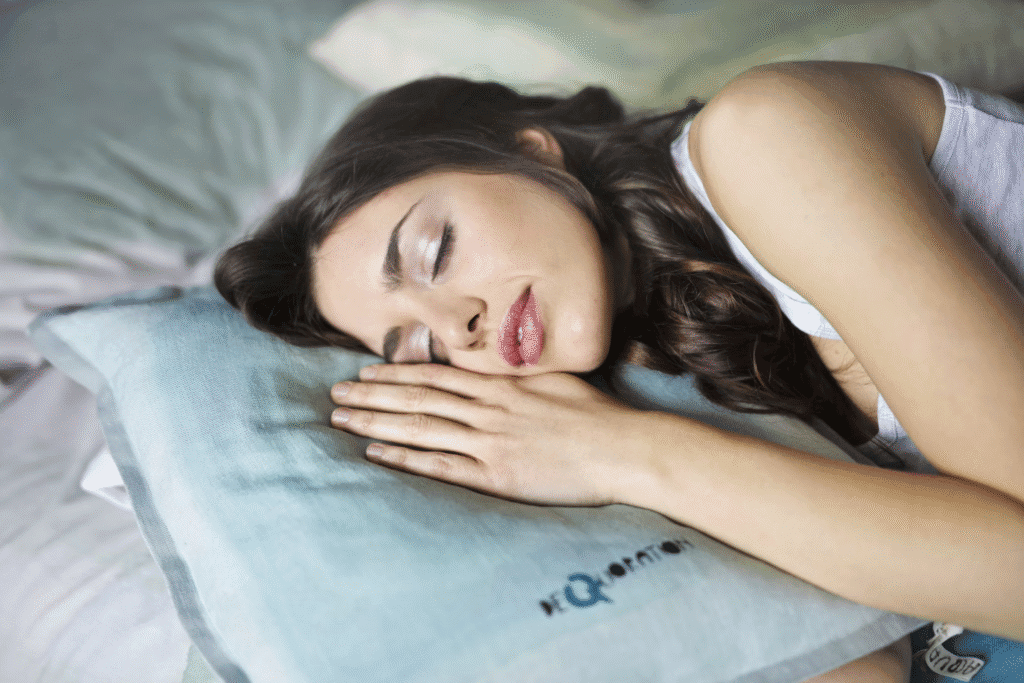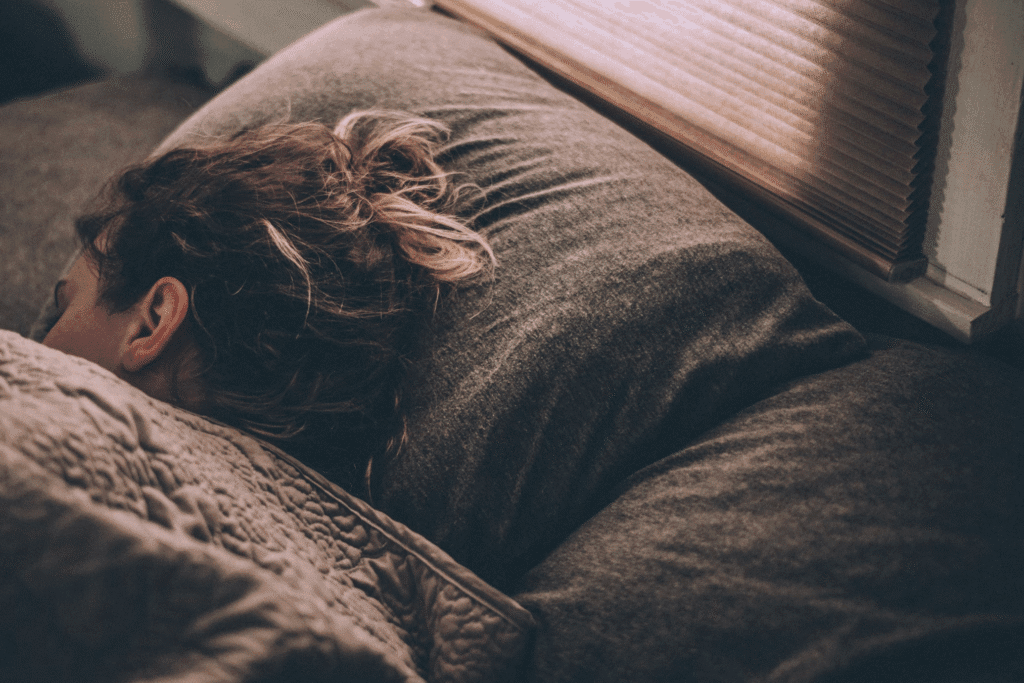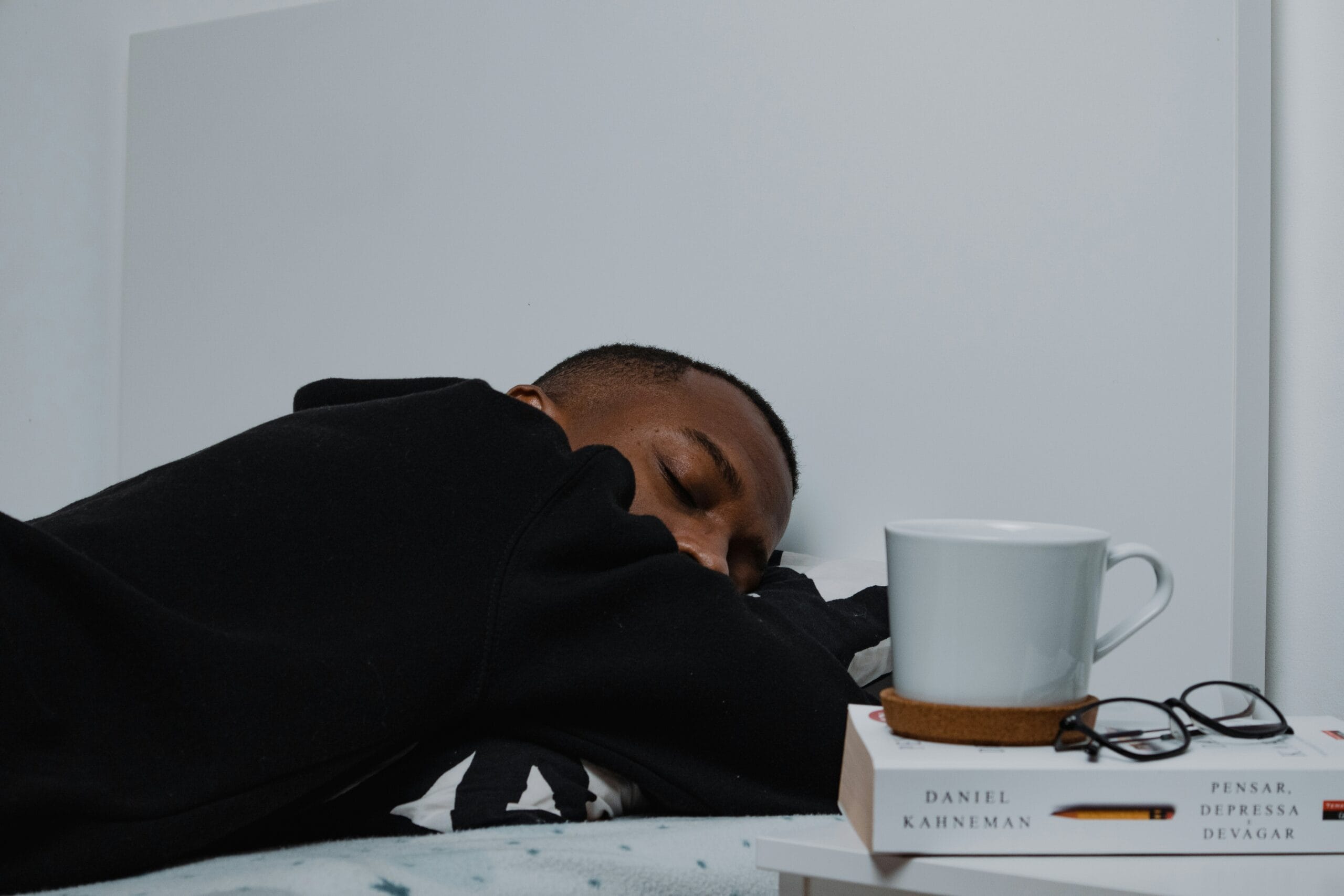Introduction
Your evening routine sets the stage for quality sleep and determines how you’ll feel the next morning. According to the National Sleep Foundation, adults who follow consistent evening routines report 23% better sleep quality and wake up feeling more refreshed.
As a wellness coach with over 8 years of experience helping clients optimize their daily habits, I’ve seen firsthand how the right evening routine can transform both sleep and overall life satisfaction. This comprehensive guide combines scientific research with practical steps you can start implementing tonight.


Why Your Evening Routine Matters
The Science Behind Evening Routines
Research published in the Journal of Sleep Medicine shows that consistent pre-bedtime activities signal your brain to prepare for sleep. Dr. Matthew Walker, neuroscientist and author of “Why We Sleep,” explains that evening routines help regulate your circadian rhythm – your body’s internal clock.
Benefits of a Structured Evening Routine
- Improved Sleep Quality: Regular routines can increase deep sleep by up to 35%
- Reduced Stress: Evening rituals lower cortisol levels by 28% on average
- Better Mental Health: Consistent routines reduce anxiety and improve mood
- Enhanced Productivity: Quality sleep improves next-day focus by 40%
- Stronger Relationships: Calm evenings create space for meaningful connections
The 10-Step Ultimate Evening Routine
Step 1: Set a Digital Sunset (2-3 Hours Before Bed)
The blue light from screens disrupts melatonin production, making it harder to fall asleep. Harvard Medical School research shows that blue light exposure can delay sleep onset by up to 3 hours.
What to do:
- Turn off all screens 2-3 hours before bedtime
- Use blue light blocking glasses if you must use devices
- Switch phones to “Do Not Disturb” mode
- Create a charging station outside your bedroom
Pro Tip: Replace evening screen time with reading, journaling, or gentle stretching.
In my own routine, I turn off the main lights and switch on a warm bedside lamp. It’s a small act, but it signals my brain it’s time to unwind
Step 2: Prepare Tomorrow’s Essentials (30 minutes)
Planning ahead reduces decision fatigue and morning stress. Studies show that people who prepare the night before report 25% less morning anxiety.
Evening preparation checklist:
- Lay out tomorrow’s clothes
- Pack your work bag or gym bag
- Prepare breakfast ingredients
- Review your schedule
- Set up your workspace
Step 3: Create a Calming Environment (15 minutes)
Your sleep environment directly impacts sleep quality. The Sleep Foundation recommends specific conditions for optimal rest.
Environmental adjustments:
- Dim lights to 30% of daytime brightness
- Set room temperature between 65-68°F (18-20°C)
- Use blackout curtains or eye masks
- Reduce noise with earplugs or white noise
- Ensure your mattress and pillows are comfortable
In my own routine, I turn off the main lights and switch on a warm bedside lamp. It’s a small act, but it signals my brain it’s time to unwind
Step 4: Practice Gentle Movement (10-20 minutes)
Light evening exercise can improve sleep quality, but avoid vigorous workouts within 3 hours of bedtime. Yoga and stretching are particularly effective.
Recommended evening movements:
- Gentle yoga sequences
- Light stretching routine
- Deep breathing exercises
- Progressive muscle relaxation
- Short leisurely walk
Sample 10-Minute Evening Stretch Routine:
| Exercise | Duration | Benefits |
|---|---|---|
| Neck rolls | 1 minute | Releases tension |
| Shoulder shrugs | 1 minute | Reduces stress |
| Cat-cow stretches | 2 minutes | Spine mobility |
| Child’s pose | 2 minutes | Hip relaxation |
| Legs up the wall | 4 minutes | Improves circulation |
Step 5: Nourish Your Body Mindfully (1 hour before bed)
What you eat and drink in the evening affects sleep quality. Avoid large meals, caffeine, and alcohol close to bedtime.
Evening nutrition guidelines:
- Stop eating 2-3 hours before sleep
- Choose light, easily digestible snacks if hungry
- Limit fluids 1 hour before bed to prevent sleep disruption
- Try herbal teas like chamomile or passionflower
Sleep-promoting foods:
- Almonds (rich in magnesium)
- Turkey (contains tryptophan)
- Tart cherries (natural melatonin)
- Banana (potassium and magnesium)
- Oatmeal (complex carbohydrates)
Step 6: Practice Personal Hygiene Rituals (15-20 minutes)
A consistent hygiene routine signals to your brain that it’s time to wind down. This is also self-care time that promotes relaxation.
Evening hygiene checklist:
- Brush and floss teeth
- Wash face with gentle cleanser
- Apply moisturizer or skincare routine
- Take a warm shower or bath
- Use aromatherapy (lavender, eucalyptus)
In my own routine, I turn off the main lights and switch on a warm bedside lamp. It’s a small act, but it signals my brain it’s time to unwind
Step 7: Engage in Mindful Reflection (10-15 minutes)
Journaling and reflection help process the day’s events and clear mental clutter. Research from the University of Rochester shows that expressive writing improves both sleep and immune function.
Reflection prompts:
- What went well today?
- What am I grateful for?
- What challenges did I overcome?
- What do I want to focus on tomorrow?
- How am I feeling right now?
Step 8: Practice Relaxation Techniques (10-20 minutes)
Relaxation techniques activate your parasympathetic nervous system, promoting rest and recovery.
Effective relaxation methods:
- Deep breathing exercises (4-7-8 technique)
- Progressive muscle relaxation
- Guided meditation
- Visualization exercises
- Mindfulness practices
Simple 4-7-8 Breathing Technique:
- Inhale through nose for 4 counts
- Hold breath for 7 counts
- Exhale through mouth for 8 counts
- Repeat 4 times
Step 9: Read or Listen to Calming Content (20-30 minutes)
Reading fiction or listening to calming audio helps transition your mind from active thinking to rest mode. Choose content that’s engaging but not overstimulating.
Best evening content choices:
- Fiction books (avoid thrillers)
- Poetry or inspirational texts
- Calming podcasts
- Audiobooks with soothing narration
- Guided sleep stories
Step 10: Practice Gratitude and Set Intentions (5-10 minutes)
End your routine with positive thoughts. Gratitude practice has been shown to improve sleep quality and overall life satisfaction.
Gratitude and intention practice:
- Write down 3 things you’re grateful for
- Set a positive intention for tomorrow
- Practice loving-kindness meditation
- Visualize tomorrow going well
- Release any worries or concerns


Customizing Your Evening Routine
For Busy Professionals
If you have limited time, focus on these essential elements:
- 15-minute digital sunset
- 5-minute reflection
- 10-minute relaxation technique
- Consistent sleep time
For Parents
Adapt your routine around family needs:
- Include family preparation time
- Share relaxation activities with children
- Use shorter, flexible time blocks
- Prepare children’s items alongside your own
For Shift Workers
Maintain routine principles regardless of your schedule:
- Create darkness cues for your “evening”
- Use blackout curtains and sleep masks
- Maintain consistent timing relative to your sleep
- Focus on relaxation techniques
Common Evening Routine Mistakes to Avoid
Mistake 1: Inconsistent Timing
Problem: Going to bed at different times disrupts your circadian rhythm.
Solution: Set a consistent bedtime and work backward to create your routine.
Mistake 2: Overstimulating Activities
Problem: Intense exercise, work, or emotional conversations close to bedtime.
Solution: Schedule these activities earlier in the evening or for morning.
Mistake 3: Perfectionism
Problem: Trying to do everything perfectly every night.
Solution: Aim for 80% consistency and adapt when needed.
Mistake 4: Too Many Components
Problem: Creating a routine that’s too long or complicated.
Solution: Start with 3-4 core elements and gradually add more.
Scientific Research Supporting Evening Routines
Multiple studies demonstrate the effectiveness of structured evening routines:
- Stanford University Study (2023): Participants with consistent evening routines showed 42% improvement in sleep onset time
- Mayo Clinic Research (2022): Evening relaxation techniques reduced insomnia symptoms by 58%
- American Psychological Association (2023): Regular bedtime routines decreased anxiety levels by 31%
Dr. Michael Breus, clinical psychologist and sleep specialist, states: “The evening routine is like a dimmer switch for your brain. It gradually signals that it’s time to transition from activity to rest.”
Sample Evening Routine Timeline
Here’s a practical timeline you can adapt to your schedule:
| Time | Activity | Duration |
|---|---|---|
| 3 hours before bed | Digital sunset begins | Ongoing |
| 2 hours before bed | Prepare tomorrow’s essentials | 30 minutes |
| 1.5 hours before bed | Light dinner or snack | 30 minutes |
| 1 hour before bed | Personal hygiene routine | 20 minutes |
| 45 minutes before bed | Gentle movement/stretching | 15 minutes |
| 30 minutes before bed | Reading or calm activities | 20 minutes |
| 10 minutes before bed | Gratitude and reflection | 5 minutes |
| Bedtime | Sleep | 7-9 hours |
Tracking Your Progress
Monitor your evening routine effectiveness by tracking:
- Sleep quality (1-10 scale)
- Time to fall asleep
- Number of wake-ups during night
- Morning energy levels
- Mood and stress levels
Use apps like Sleep Cycle, Oura Ring, or simple journal tracking to monitor improvements.
Troubleshooting Common Challenges
“I Don’t Have Enough Time”
Trust me, I’ve been there. On hectic days, even 5 minutes can feel like a stretch.”
Start with a 15-minute routine focusing on digital sunset, quick hygiene, and 5 minutes of relaxation. Gradually extend as the habit forms.
“My Schedule Is Unpredictable”
Create a flexible framework with core elements (no screens, relaxation technique, consistent sleep time) that work regardless of your daily schedule.
“I Live with Others Who Don’t Follow Routines”
- Use headphones for calming audio
- Create your own space for routines
- Communicate your needs respectfully
- Lead by example rather than forcing others
“I Feel Guilty About Self-Care Time”
Remember that good sleep affects every area of your life.
The Long-Term Benefits
Consistency is key. After 30 days of following an evening routine, research participants typically report:
- Sleep improvements: 45% better sleep quality
- Stress reduction: 38% lower evening cortisol levels
- Productivity gains: 32% better next-day focus
- Relationship benefits: More patient and present with loved ones
- Health improvements: Better immune function and mental clarity
Advanced Evening Routine Strategies
Seasonal Adjustments
Winter routines might include:
- Earlier digital sunset due to less natural light
- Warm baths or showers
- Heavier moisturizers for dry skin
- Vitamin D consideration
Summer routines might include:
- Later routines due to extended daylight
- Lighter meals and clothing
- Extra hydration focus
- Cooling strategies for hot nights
Technology Integration
While limiting screens is important, some technology can enhance your routine:
- Blue light blocking apps (f.lux, Night Shift)
- Sleep tracking devices
- Meditation apps (Headspace, Calm)
- White noise or nature sound apps
- Smart home lighting systems
Building Your Personal Evening Routine
Some nights, you’ll forget or skip it — that’s totally normal. Progress over perfection.”
Week 1: Foundation
Start with these three core elements:
- Consistent bedtime
- 30-minute digital sunset
- 10-minute relaxation practice
Week 2: Expansion
Add these elements:
- Evening preparation routine
- Personal hygiene rituals
- Light reading or calm activity
Week 3: Optimization
Include these advanced components:
- Gentle movement or stretching
- Journaling or reflection
- Environmental optimization
Week 4: Personalization
Customize based on what works best:
- Adjust timing to fit your schedule
- Add personal touches (music, aromatherapy)
- Fine-tune based on sleep quality results
You don’t have to do all 10 steps. Choose what resonates most with you — even 2-3 consistent habits can transform your nights.


Expert Tips for Success
From Dr. Sara Mednick, sleep researcher at UC San Diego: “The key to a successful evening routine is consistency over perfection. Your brain craves predictable patterns, so focus on doing the same things in the same order each night.”
From Marie Kondo, organization consultant: “Create an evening routine that sparks joy. When you love your nighttime rituals, you’ll naturally want to maintain them.”
From Dr. Andrew Huberman, neuroscientist at Stanford: “Light, temperature, and timing are the three pillars of good sleep. Your evening routine should optimize all three.”
Conclusion
A well-crafted evening routine is one of the most powerful tools for improving your sleep, reducing stress, and enhancing overall life quality. The key is to start small, stay consistent, and gradually build habits that work for your unique lifestyle.
Remember, the best evening routine is one you can maintain consistently. Begin with just 2-3 elements that feel manageable, then gradually add more components as these become natural habits.
Quality sleep isn’t a luxury—it’s a necessity for optimal health, productivity, and happiness. By investing 30-60 minutes each evening in a structured routine, you’re investing in better days ahead.
Take Action Tonight: Your Evening Routine Challenge
Ready to transform your evenings and improve your sleep? Here’s your step-by-step action plan:
“Start small. Try one change tonight — even two minutes of deep breathing can set a new tone for your evening“.
Tonight, commit to these three simple steps:
- Set your digital sunset – Put all screens away 1 hour before your target bedtime
- Practice 5 minutes of deep breathing – Use the 4-7-8 technique described above
- Write down one thing you’re grateful for – Keep a small notebook by your bed
What’s Your Next Step?
The perfect time to start is tonight. Choose just one element from this guide and commit to doing it for the next 7 days. Whether it’s setting a digital sunset, practicing gratitude, or doing gentle stretches, small consistent actions create life-changing results.
Remember: You’re not just creating an evening routine—you’re investing in better sleep, reduced stress, improved relationships, and enhanced productivity. Every night you follow your routine is a gift to tomorrow’s version of yourself.
Start tonight. Your future self will thank you.
What evening routine element will you try first? and inspire others to join the journey toward better sleep and wellbeing.







